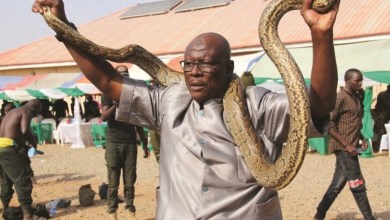Leaked Documents Show How Minister Nyesom Wike Secretly Acquired $2 Million U.S. Mansion Through Wife and Children
Nyesom Wike Secretly Acquired $2 Million U.S. Mansion Through Wife and Children

Fresh revelations have surfaced, alleging that Nigeria’s Minister of the Federal Capital Territory (FCT), Nyesom Wike, secretly acquired a luxury property in the United States worth over $2 million, using the names of his wife and children to conceal ownership. The expose, backed by leaked documents, has stirred controversy and renewed public debate about corruption, accountability, and the use of public office for personal enrichment.
According to the documents, the mansion—located in a highbrow neighborhood of the U.S.—was purchased discreetly through proxy arrangements that shielded Wike’s direct involvement. The property was allegedly registered in the names of his wife and children, raising concerns about possible money laundering, abuse of power, and an attempt to evade scrutiny from both Nigerian and international anti-graft agencies.
Critics argue that the revelation raises serious ethical questions, especially as Wike currently oversees the nation’s capital and plays a central role in the administration of President Bola Ahmed Tinubu. Civil society groups and transparency advocates have already begun calling for a thorough investigation into the minister’s financial dealings and asset declarations.
While Wike has not yet issued an official response to the allegations, his political allies have dismissed the report as a smear campaign aimed at undermining his influence within the government. They claim that such publications are timed to distract the public from his ongoing policies and projects in Abuja.
However, opposition voices insist that the matter cannot be swept aside. They stress that public officials must be held accountable, particularly when allegations involve offshore assets and hidden wealth that contrast sharply with the socio-economic realities facing ordinary Nigerians.
Analysts note that this case could test the Tinubu administration’s promise to fight corruption and promote transparency. If ignored, it could further erode public trust in the government’s commitment to accountability.
As the controversy gathers momentum, Nigerians and the international community alike will be watching closely to see whether relevant anti-corruption bodies—such as the Economic and Financial Crimes Commission (EFCC) and the Code of Conduct Bureau (CCB)—will take up the matter or allow it to fade into political Silence













